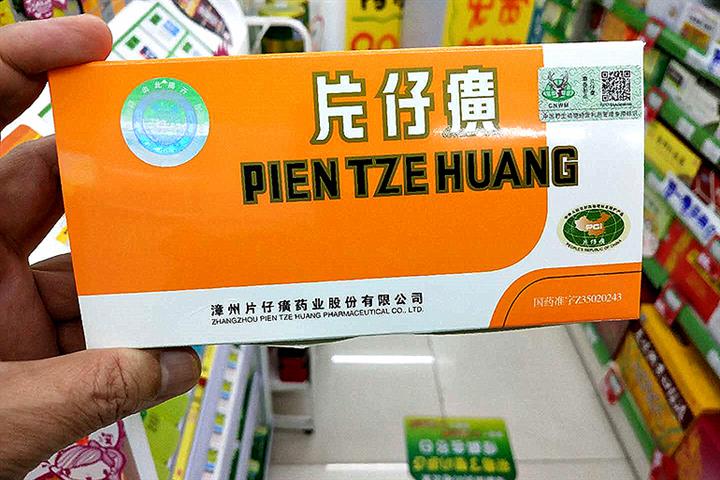 Chinese Drugmaker Pientzehuang Gains to Record Amid Surge in Herbal Pill Price
Chinese Drugmaker Pientzehuang Gains to Record Amid Surge in Herbal Pill Price(Yicai Global) June 25 -- Pientzehuang Pharmaceutical’s shares surged to a record high following the near doubling in price of one of the Chinese drugmaker’s herbal tablets used to treat liver disease and inflammation due an acute shortage.
Its stock price [SHA: 600436] has been gaining since the Covid-19 pandemic broke out. The increase accelerated recently due to the surging price of Pien Tze Huang, or Pienzehuang in Pinyin, hitting an all-time high of CNY452.27 (USD70.10) today, up more than 300 percent from early 2020.
The shares closed at CNY446.90 each, a 4.5 percent gain, giving the Zhangzhou-based company a market value of nearly CNY270 billion (USD41.8 billion). The benchmark Shanghai Composite Index rose almost 1.2 percent.
Responding to the near doubling in the price of Pien Tze Huang as a result of market speculation, Pientzehuang said earlier today that it would increase supply of the pills to maintain market order.
Pien Tze Huang is a drug made from Moschus, the glandular secretions from animals such as the musk deer, and other ingredients of traditional Chinese medicine.
Pientzehuang said on the Shanghai Stock Exchange’s investor interaction platform that it will do an effective job of production and supply so as to increase the amount of Pien Tze Huang delivered to proprietary sales channels and mainstream drugstores.
The company added that it expanding its sales channels and has opened a flagship store on e-commerce site Tmall, with a flagship outlet on JD.com in the works.
Pientzehuang’s main product is the pill of the same name. According to the firm’s website, the tablet is used to treat various kinds of liver diseases and inflammation.
The 3 gram tablet, with an official reference price of CNY590 (USD91) per troche, is now selling for more than CNY1,000 (USD155) each due to severe short supply.
Pien Tze Huang’s formula is a state-protected secret, and Moschus, one of its ingredients, is a rare raw material controlled by the state, the People’s Daily’s Health Times reported today.
The recent sharp hike in the price of Moschus, caused by the pandemic, is one of the reasons for the shortage of Pien Tze Huang in the market, it added.
Excessive marketing and speculation are also cited for the price surge. According to the Health Times report, Pien Tze Huang is not commonly used in Chinese hospitals’ clinical practice.
Its consumption comes more from health care and gift-giving among high-net-worth individuals. This is because the drug is thought to alleviate liver damage from excessive drinking and is expensive enough to meet the criteria of a gift.
Editor: Peter Thomas